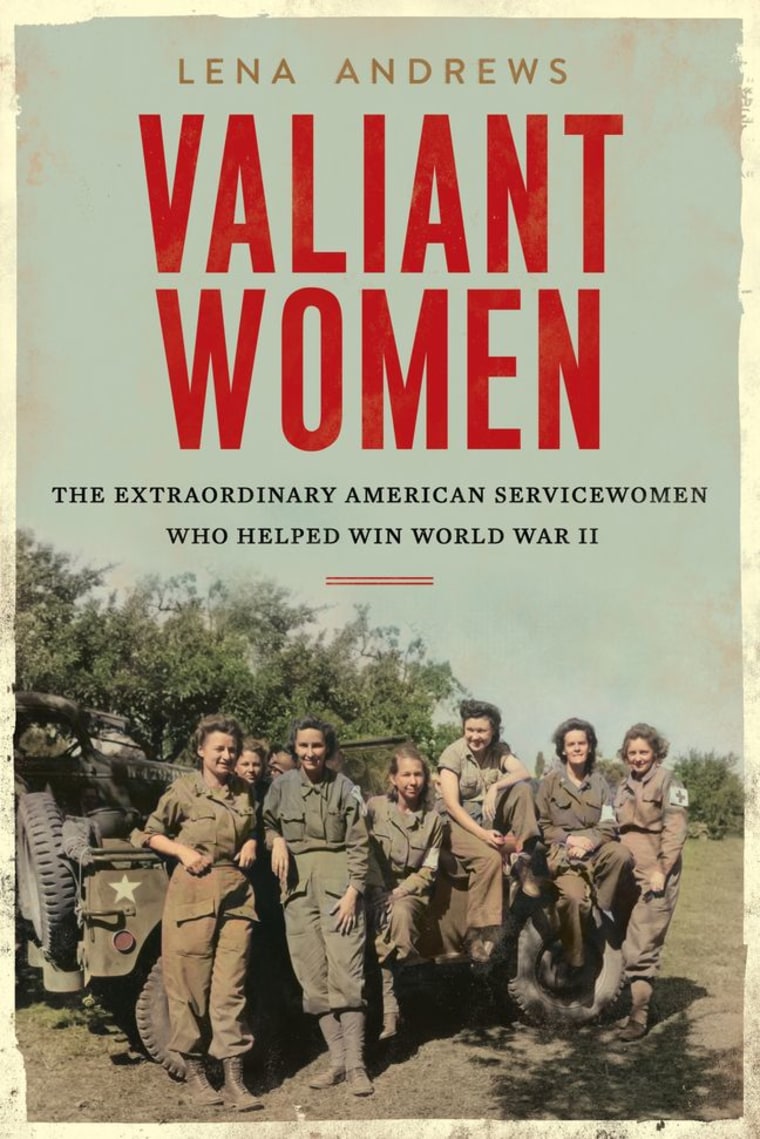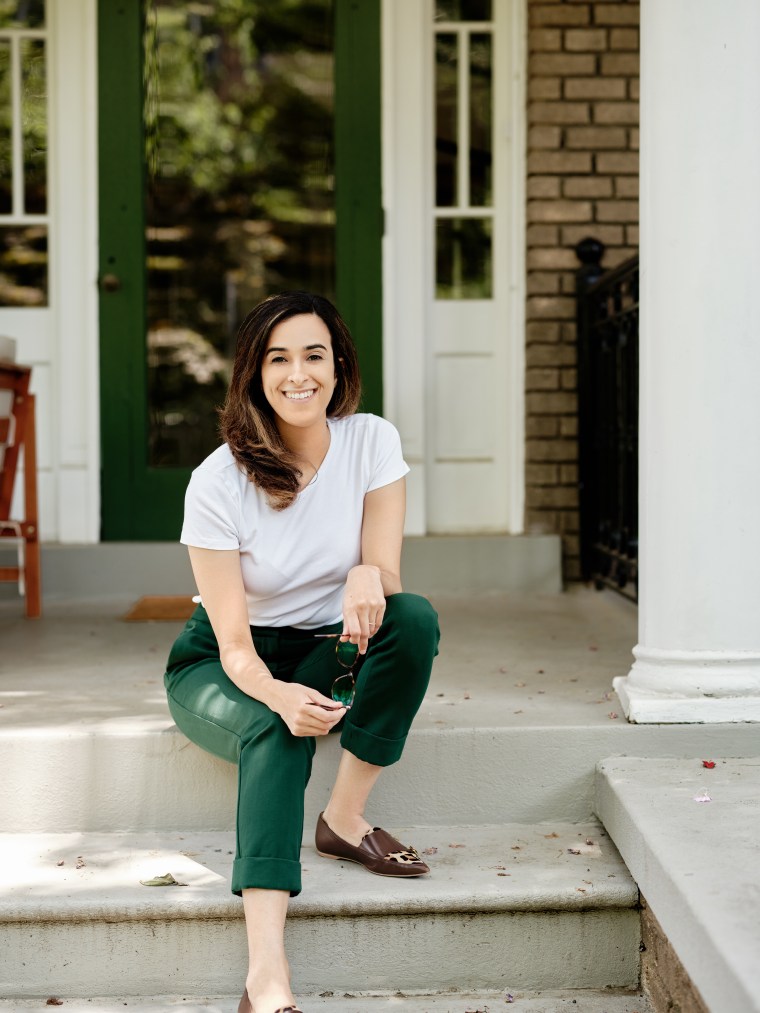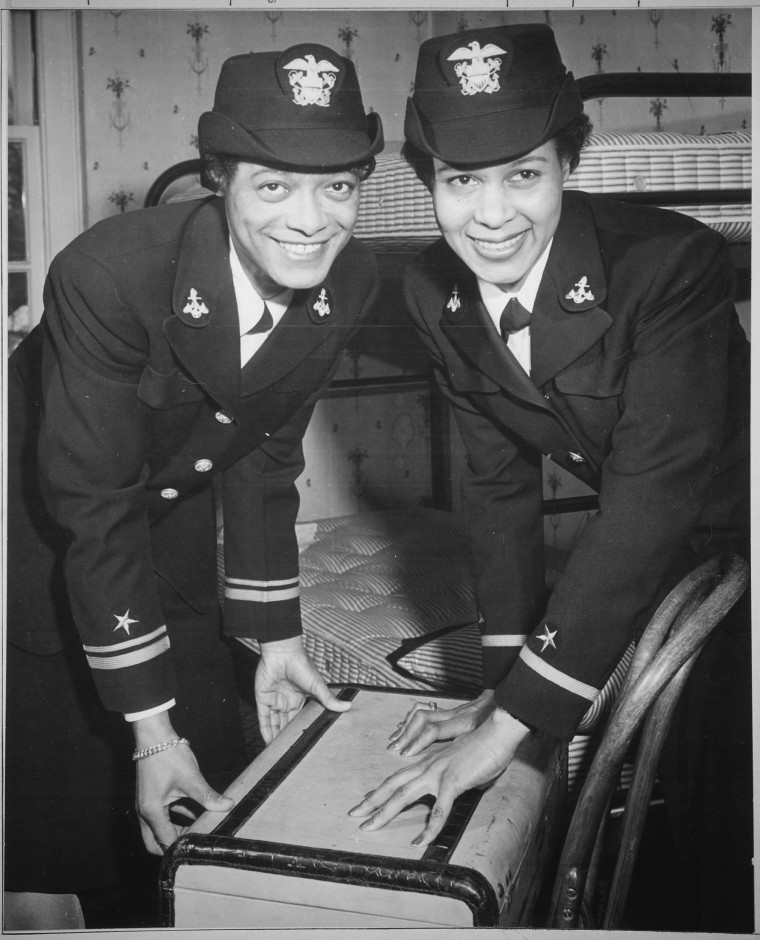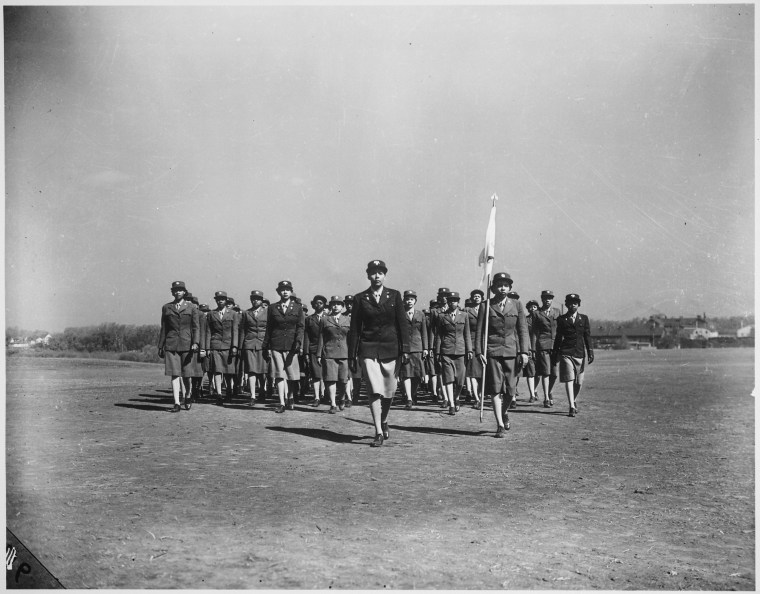Often when history books tell the stories of American women during World War II, it’s through the lens of them filling in for men in the workplace while they went to fight abroad.
What’s not commonly discussed is that women were just as eager as men to serve in the military - and they did. Over 350,000 American women served in uniform during World War II, participating in every service branch and in every combat theater. They served all different kinds of roles, including as pilots, aircraft trainers, gunnery instructors, chemists, code breakers, parachute riggers and more.
“I don't think many people know how big of a contribution, not only in size, but in content and scope existed for women in World War II,” said military analyst and author Lena Andrews. “[Women] ended up being the backbone of the allied victory.”

Andrews tells the story of many of the trailblazing women in her new book, “Valiant Women: The Extraordinary American Servicewomen Who Helped Win World War II.” It the book, she draws upon archival research and firsthand interviews with six surviving veterans and their families.
Know Your Value spoke with Andrews about the book, the challenges the servicewomen faced and what we can learn today from the brave women of World War II.
Below is the conversation, which has been edited for brevity and clarity.
Know Your Value: Tell us the genesis of the book and why you wanted to tell this story now?
Lena Andrews: Like most Americans, when I thought of women in WWII, I thought of Rosie the Riveter. It wasn't until I got really deep into my research on WWII that I even became aware of the scale and scope of women who served in uniform. Over 350,000 women served. Women did jobs like translating French documents that were captured behind enemy lines, and fixing planes to redeploy them in the Pacific. The roles of women became a critical support infrastructure that ended up being the backbone of the allied victory.

Know Your Value: Our history books go into great detail about how American women took over men’s jobs when they went overseas to fight in WWII. But as you note, women were just as excited to join the military and help in the war. Why don’t we hear this part of the story?
Andrews: It’s a disappointing part of our collective history about WWII that we don’t tell these women’s stories more often. We've done such a good job honoring a lot of the men, and rightly so, who served in WWII. I think that part of the reason that we forgotten these women’s stories is a product of the aftermath of the war. The first thing anyone wanted to do when the war was over was to go back to normal. Normal meant, for women in 1945, to go home, be a homemaker, get out of the workforce, give the men back their jobs, and not talk about their service. Unfortunately, the undercurrent of that is the women were indirectly told that the world didn’t want to hear their stories. For me, a big part of this book was simply asking the women to tell their stories, even if it is many years later.

Know Your Value: Eleanor Roosevelt wanted all women to have the same rights as men overseas. Tell us about the role she played with women who fought in the war.
Andrews: Eleanor is a real hero of mine. During WWII, she exhibited a lot of the characteristics that we hope women leaders would exhibit today, but he was doing it in 1942, showing what a visionary leader she was. She would write about the importance of incorporating women in the services. She was one of the first sponsors of some of the senior directors in the military and was a great networker. Eleanor found really talented women, put them in front of important people and said to use those women. The great irony of this is that she had no formal authority in the military chain of command, yet her informal approach to sponsoring women made her an extremely powerful force in integrating women into the military.
Know Your Value: There were also thousands of Black women that served during WWII, including Vivian Corbett, who you spoke to for your book. What stood out most to you about her story?

Andrews: Vivian “Milly” Corbett was a blast to talk to. She passed away just a few years ago. I became totally enamored with her. She was whip smart and had an incredible amount of kindness and generosity. She was well aware of segregation, as every Black women was in the 1940s, and knew what she was getting into with the women's Army Corps. But she found that the economic benefits and the opportunity to serve were so compelling that she decided to serve anyway. Her patriotism was quite powerful and something that she sustained throughout the rest of her life. I think it’s important to realize that these women weren't just symbols of something, they were doing excellent work. Milly was always at the top of her class and was always succeeding. The Black women of the Six Triple Eight in WWII just recently received the Congressional Gold Medal. It is so inspiring to see women who faced so much discrimination and harassment, even in the military, continue to succeed in spite of the challenges.
Know Your Value: Your book notes that the future looks bright for women in the military. How did the women you write about in the book pave the way for women in the armed services today?
Andrews: The women I spoke to were fighting a lot of battles which sound irritably familiar to many of the things we talk about today in terms of discrimination and harassment. We can draw a lot of lessons from the book about how to handle these battles. These women would get up and do their jobs incredibly well, with integrity and grace, and quite often without complaint. We should be proud of their service. We should continue to acknowledge that, for women like me and others who work in defense and national security, we're standing directly on their shoulders.
Know Your Value: Tell us about what it was like interviewing six women who served in WWII, each of them with different perspectives and memories.
Andrews: The best and most interesting part of writing this book was interviewing the living women veterans and their families, and the families of deceased veterans as well. They were able to communicate so vividly, both the patriotism, the integrity and the honor with which they served. These women won’t brag about their time in the service, or even tell their stories unless asked. A lot of the women were surprised and shocked that anyone was interested in their stories outside of their family or the smaller women's veterans community. It was heartbreaking to see these women diminish their own contribution. But, after a couple of interviews or a few minutes, they started to acknowledge that what they contributed to the war was pretty amazing. They started to know their values. All it took was asking them to tell their stories. So I encourage folks, if they know women veterans, to ask them their story.
